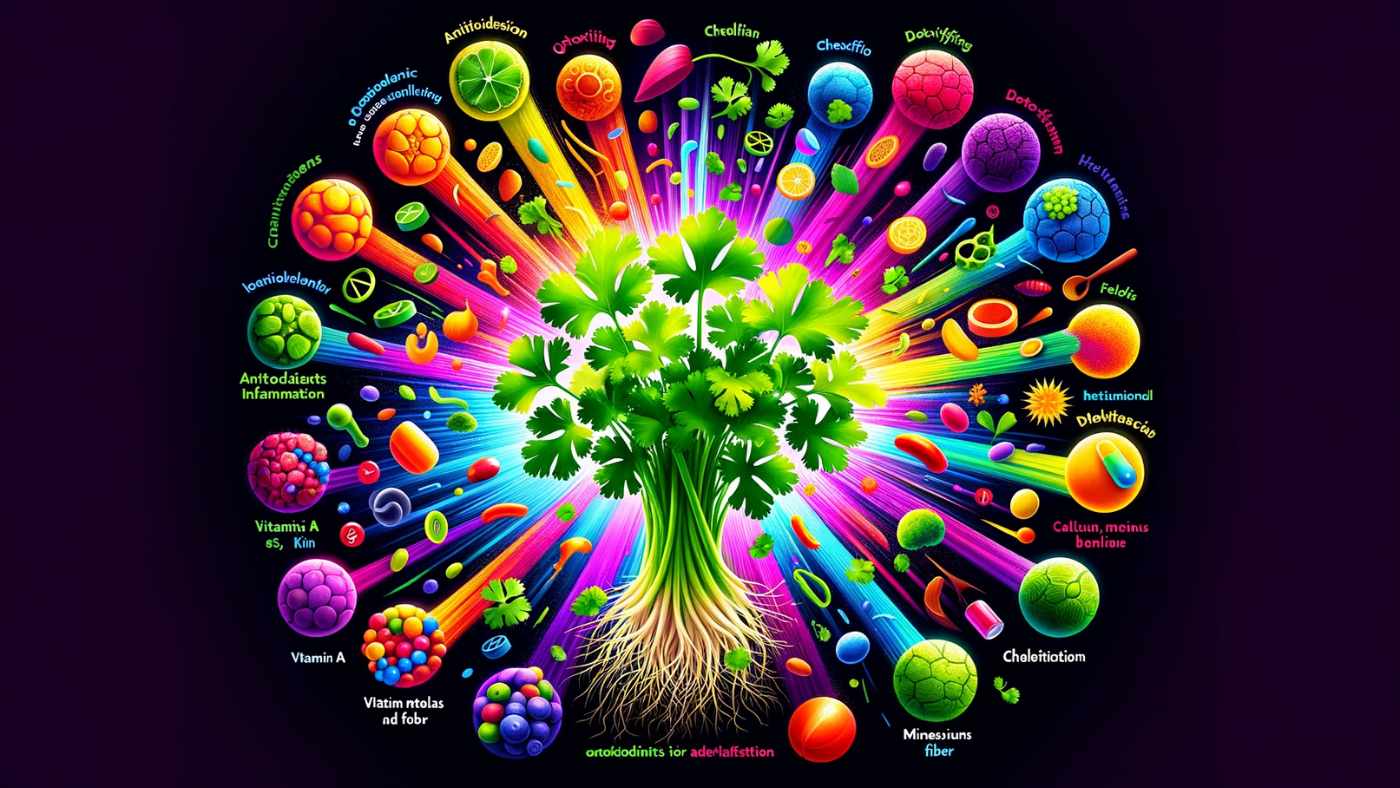Why is Cilantro Healthy?

Cilantro is often used as a garnish or sprinkled on as an afterthought. But this aromatic, leafy herb contains an impressive array of compounds that can enhance your health. Let's unpack the key nutrients that make cilantro more than just a flavorful herb.
Antioxidants for Anti-Inflammation
Cilantro contains high levels of antioxidants like quercetin, kaempferol, rhamnetin and apigenin. These compounds fight free radical damage and oxidative stress which are linked to chronic inflammation, heart disease, autoimmune disorders and other conditions.
The antioxidants in cilantro can help dampen inflammation before it causes harm.
Detoxifying Benefits
The heavy metals aluminum, lead and mercury can accumulate in our bodies through food, water and environmental exposure. Several compounds in cilantro have been studied for their chelation effects—meaning they bind to these heavy metals and remove them from tissue and blood.
Consuming cilantro may therefore have a purifying and detox effect in the body.
Vitamins, Minerals and Fiber
In addition to unique phytonutrients, cilantro contains disease-fighting vitamins and minerals like vitamin A, vitamin K, folate, and the minerals potassium, calcium and magnesium.
To top it off, cilantro has good amounts of digestive fiber. All parts—the leaves, stalks, roots and seeds—are nutritious and utilized in cuisine or traditional practices.
So be sure to incorporate cilantro into your cooking routine! Add handfuls while cooking or sprinkle it raw over finished dishes. Consuming cilantro regularly can contribute antioxidants, heavy metal detoxifiers, vitamins, minerals and fiber to support good health.
The research continues to unveil the major health benefits packed within this flavorful herb. Cilantro is truly more than a garnish!
